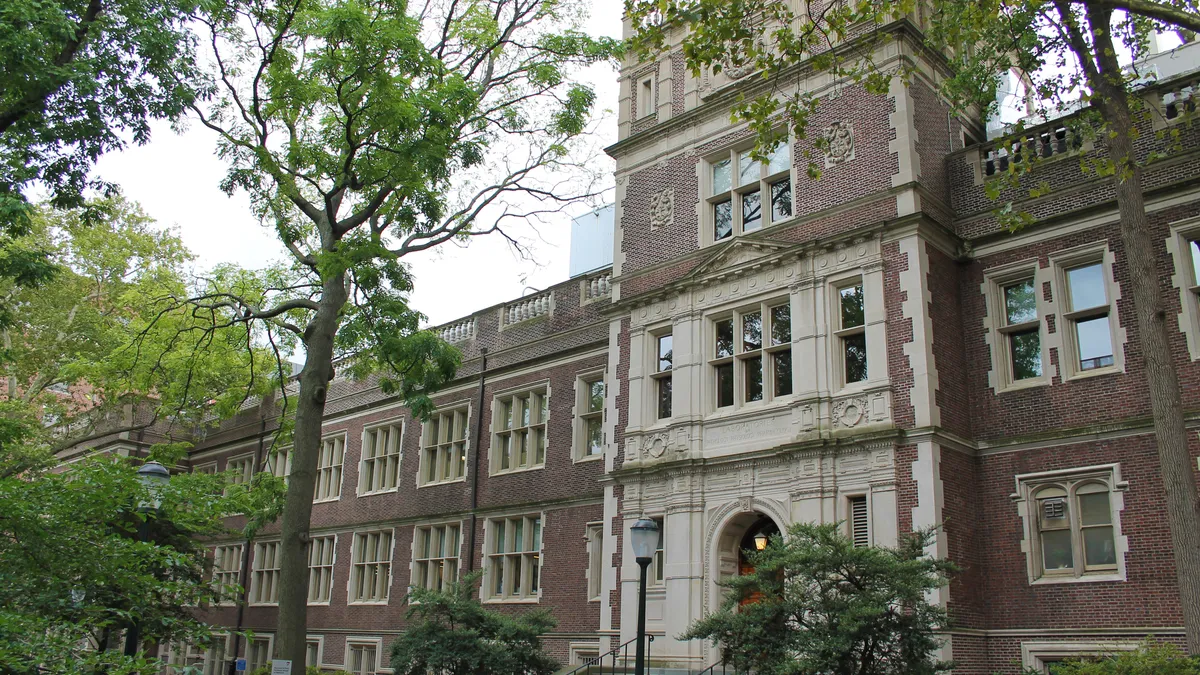Dive Brief:
- The growing use of big data by various segments of campus includes researchers, who are increasingly finding ways to connect with peers to share work and learn more about the process of handling data, EdTech reports.
- The big networks that support such computing not only allow researchers to collaborate with colleagues, but also attract grant money and can lead to changes in IT that could be helpful or drive bigger developments in how information is shared. The National Science Foundation Network, created in the 1980s, eventually became the foundation for the Internet, for instance.
- The nonprofit Massachusetts Green High Performance Computing Center near Boston, for example, is a joint venture between Boston University, Harvard University, the Massachusetts Institute of Technology, Northeastern University and the University of Massachusetts but is open for use by any research organization. It runs "millions of virtual experiments every month, supporting thousands of researchers in Massachusetts and around the world," the center reports. It cuts costs by using some state subsidies and by locating in spots where expenses are low.
Dive Insight
Similar systems are developing in other regions. The Pacific Research Platform connects research networks at institutions along the West Coast and has been supported by a $5 million grant from the National Science Foundation (NSF) with the hope of moving data 1,000 times faster for its researchers. The NSF has made grants to more than 100 universities to upgrade their network systems to improve science data access.
One expert says the problem with handling data often lies in outdated equipment researchers are using at their sites or a lack of knowledge about the capacity of their networks, so more discussions and collaboration are needed. At the University of Texas at Austin’s Texas Advanced Computing Center, participants found the system could easily and quickly back up big chunks of key data, once they had learned its capacity.
Small colleges also are making an effort to develop research networks. Through the Ecological Research as Education Network, for instance, 72 smaller institutions are helping each other with grant proposals, research protocols, manuscripts, and teaching students through collaborative research among various campuses.
Big data is being used in a variety of other ways on campuses. Some experts say that it is just as critical for such networks to exist within a college because often data from one department is valuable to another or can be used in connection with others. A survey of higher education leaders showed that most were expecting to use a growing amount of big data, but were uncertain about how to use it and whether the priority would be learning or campus efficiencies and recruiting.














